EIT Food
RIS Consumer Engagement Labs



About the project

EIT Food Consumer Engagement Labs are pre-competitive co-creation sessions carried out by a relatively coherent group of consumers (selected based on specific segmentation criteria) in a joint, physical place and limited in time, focused on ideation/development of new product concepts. Unlike typical sensory panels and consumer surveys, they do not involve testing of sample products but creation of innovative, yet non-existing combinations of product features and benefits.
The Consumer Engagement Labs is coordinated by the University of Warsaw with the involvement of industrial and academic partners and subcontractors. Labs activities are pre-competitive in nature, i.e. multiple companies could be inspired by insights into consumer preferences. It uses novel techniques to engage consumers, stimulate creativity, and foster the acceptance of new products. It allows non-experts to modify product features without the need to master specialist vocabulary or understand ingredients and manufacturing methods. This collective exercise yields non-obvious, counter-intuitive combinations of product features and is attractive for consumers involved in the co-creation.
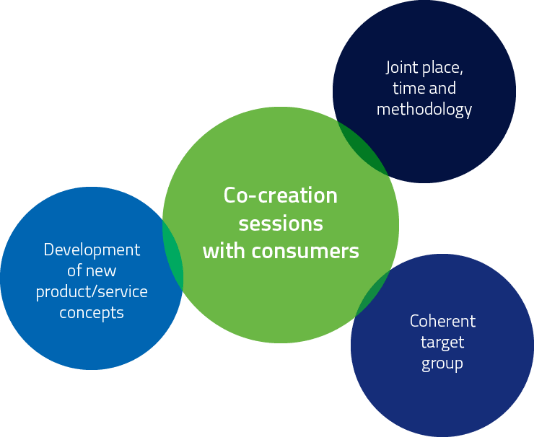
Why it matters
Traditional development of new food and beverage products was based in-house, and consumers were approached to verify their acceptance of new product concepts, sensory aspects, packaging, or promotional messages. EIT Food Consumer Engagement Labs put the consumers in the centre of the creative process, unleashing their creative potential, and turning the consumers into genuine change agents, who propose new products or services to be implemented by companies.
Consumer co-creation is an important learning process, through which a combination of knowledge, lifetime experience, diverse personal value systems, and preferences could be turned into innovative ideas and product designs. The RIS CEL co-creation methodology could be further used in other geographies, consumer segments and product categories, as well as inspire participants of various activities of EIT Food.
Benefits of the project:
• Addressing societal challenges: Labs involve coherent groups of consumers, united by the same societal need, health condition, or economic problem, which might be perceived as a vulnerabilities by the mass marketers, but are important factors to approach the usually overlooked consumer groups in a socially responsible way
– The project focuses on encouraging food and beverages companies in Europe to become more sensitive to specific needs and product requirements of elderly consumers, in countries where aging tends to be accompanied by impaired purchasing power.
• Pursuing co-creation: new product/service concepts created jointly with consumers, with companies gaining insights into specific preferences and ideas of consumers
– Following the outcomes of 2019 and 2020 project, 14 new products/services developed in the Labs will be introduced to the market by food producers and retailers in 14 European countries
• Supporting multiple stakeholders in several countries
– The project contributed to the establishment of 14 consortia, involving scientific organisations, food retailers, food producers, start-ups and non-governmental organisations, in 14 European countries. These consortia gain specialist training and advise, access to Labs methodology and toolsets, as well as support for new product/service commercialisation, and work with consumers to deliver local Labs sessions. Altogether, 46 organisations from 14 countries covered by the EIT Regional Innovation Scheme will benefit from the project.
• Development and piloting of novel methodology
– The project leverages the insights of anthropologists, social scientists, psychologists, socio-gerontology, consumer behaviour, and innovation management experts from academia, combined with experiences of industrial partners (food producers and food service providers) and non-governmental organisations. The methodology (scripts, toolsets, guidelines) was tested in 4 countries 2019, and further used for the Labs organisation in 10 other countries in 2020.
Consumers 65+ in the food and beverages market
The ageing society induces important challenges for economic systems and consumer markets. A constantly increasing number of members of the society belong to the group described as “elderly citizens”. This calls for better understanding of the socio-economic challenges faced by this consumer group, and for the development of dedicated products and services, often described in the context of “silver economy” or “silver market”. Elderly consumers encounter various economic, social and health-related challenges, summarized below:

The ageing population has specific nutritional requirements, which respond to chemo-sensory decline (e.g. in olfactory, gustatory and chemesthetic perception), challenges posed by dental health, possible drug interactions, changed frequency and quantity of food intake.

Elderly consumers tend to have distinctive pre-existing, personal value systems and eating habits, specific dietary preferences with elements of neophobia (avoidance of new foods) inscribed into their consumer behaviour patterns.

In countries of Eastern and Southern Europe, elderly consumers are characterized by: lower purchasing power, price consciousness and frequent experiences of food insufficiency, which might contradict their nutrition needs for balanced diets. Owing to these characteristics, they present limited monetization potential for major food manufacturers and retailers.

Elderly consumers account for a growing share of population in EIT RIS countries of Eastern and Southern Europe. Even though their specific requirements tend to be overlooked by many food producers and retailers, our project consortium believes that by understanding their needs and involving them in co-creation processes, food and beverage manufactures could better address important societal challenges. Mature market is highly diversified, including small, heterogeneous consumer segments with many potentially attractive niches that are yet to be discovered by food and beverage industry.
Food-related innovations in the silver market can promote healthy ageing, support the social inclusion of the elderly citizens and promote empathy among food system participants.
Workshops in RIS countries in 2019-2020
In 2019, the Labs were piloted in Poland, Lithuania, Portugal and Spain, engaging consumers aged 65+. Read more about the experiences of the University of Warsaw in Labs 2019 organisation
Due to the COVID-19 pandemic and sanitary restrictions, the interactive methodology of Labs, developed in 2019, was adapted to the online delivery in 10 other countries (Bulgaria, Czech Republic, Estonia, Greece, Hungary, Italy, Latvia, Romania, Slovakia and Slovenia) in 2020.
Connecting people amidst the pandemic
Forced social distancing due to the Covid-19 pandemic changed many lives. Seniors are one of the groups that are most vulnerable for negative social impact of lockdowns and isolation while also being the group of risk in the context of Covid-19. By moving Consumer Engagement Labs online, we created the space for seniors to stay active, creative and meet new people while staying at their homes. Seniors taking part in the project forged new friendships, gathered inspiration for new consumer and culinary practices and in some cases remain in contact with the local consortia after the Labs.
Helping elderly to learn new digital skills
People above the age of 65 in countries of eastern and southern Europe statistically suffer more from the “digital divide” and are often less skilled in using new technologies than younger cohorts described as “digital natives”. Although in Consumer Engagement Labs participants were recruited from the group of seniors who were already active users of the Internet, the Lab activities made them familiar with new tools and enhanced their digital skills.
Increasing the role of moderators to ensure comfort of the participants
Implementing the Labs online was a challenge for the organising institutions. To ensure comfort and successful onboarding of the participants the organisers and moderators were active not only during the workshop sessions but throughout all process starting from the recruitment, providing to the senior participants all help needed, including IT consultations. In most consortia, additional moderators were helping in facilitating the online sessions in order to assure smooth course of the workshop and respond to the needs of participants.
Balanced workload
The Offline RIS CEL workshop was organised in two days of work. However, the expertise of online educators and remote teachers indicates that such intensive work cannot be moved directly into the online setting because of challenges such as concentration, wellbeing and health which are connected with long hours spent in front of the computers. Additionally, seniors have their specific health needs. For that reason the sessions were projected in such a way which avoided working longer than 2 hours. The 2 hours sessions were spread across two weeks, to make the whole workshop process least burdensome for senior participants.
Creating new products online
In 2020 Consumer Engagement Labs proved that even in the time of social distancing it is possible to organise the whole co-creation process. Just like in previous workshops, the connections between consumers, researchers and producers were created. New ideas proposed by the participants of online workshops proved to be equally innovative as those generated in traditional workshops.
Lithuania
Spain
Poland
Portugal
Bulgaria
Czech Republic
Estonia
Greece
Hungary
Italy
Latvia
Romania
Slovakia
Slovenia
Outcomes of the RIS CEL project
Products
Grikola – buckwheat
RIS CEL 2019 Lithuania
Quick visit to the shop will show the abundance of granola products already available on the market shelves. Then why bother trying yet another product? First of all, Grikola can be used in multiple ways: as granola, as flakes or like a crust. Also, existing products are all based on wheat, with limited nutritional value and high content of gluten, making it difficult to digest and often causing allergies. Grikola, made of organic buckwheat contains a higher amount of nutrients and fibre. Moreover, Grikola is gluten free and allergen free, ensuring that it’s suitable for everyone. Healthy food is great for our bodies, but can also be extremely boring. Wouldn’t it be better to have some fun and pleasure when preparing healthy snacks? Therefore, Grikola will come in different colours made from natural products e.g. vegetable, fruit and berries powders. Fruit, vegetable and berries pieces and powders will be freeze dried, ensuring that all nutritious properties will be saved. While talking to our senior consumers we have realized that they enjoy the crunchiness of food, but oftentimes they find favourite crumbly products too hard to chew. Grikola, using innovative technology will give the sensation of crunchiness without having to worry about teeth. On top of that, Grikola aims at promoting local foods and advocates for limiting carbon footprint and a more environmentally conscious diet.
Healthy beets
RIS CEL 2019 Poland
Beets run in Polish veins, same as cabbage. They are the fourth most popular and liked vegetable, especially for senior households. But its preparation is often demanding and can be quite messy. It is also difficult to prepare just the amount that one needs for a single meal. Thus, Burak na zdrowie (eng. Healthy Beets) offers a spiced up version of a traditional home-made dish with a healthy supplement. It combines a well-known recipe for a beetroot salad with a touch of exotic taste thanks to the fresh turmeric and ginger, zhoozhed up by collagen. So, instead of having to buy additional supplements, it is already in the salad. Apart from innovative ingredients, Burak na zdrowie (ang. Healthy Beets) meets the needs of senior consumers regarding packaging. It comes in convenient portions, enough for 1-2 servings, thus reducing the risk of unwanted leftovers to the minimum, and preventing from dull need of eating the same product ad nauseam.
Biscuits Equilíbrio
RIS CEL 2019 Portugal
Biscuits are a typical staple in the Portuguese diet. However, typically, such products usually contain ingredients that the elderly should abstain from (wheat, processed fats, sugar). The innovative character of the biscuits manifests itself in the fact that Biscuits Equilíbrio are not a substitute of traditional biscuits but their healthy version that may become a substantial part of the everyday diet of seniors who still want to enjoy the pleasure of eating a biscuit regardless of the diet restrictions they need to follow.
Tuna pâté with piquillo peppers
RIS CEL 2019 Spain
Crema de pimientos de piquillo con atún (eng. Tuna pâté with piquillos pepper) may seem similar to several dishes that belong to the broad category of tapas, small plates served in Spanish bars and restaurants with a glass of wine. However, there is no product such as this one on the Spanish market. Packed in a small jar in a portion suitable for two people, it is a perfect appetizer or snack for small households, such as many seniors’. Piquillo peppers are hard to prepare at home; its attractive smoky sweet-spicy taste originates to a great extent from a specific way of processing. Packaging and readiness-to-eat of Crema de pimientos de piquillo con atún (eng. Tuna pate with piquillos pepper) underlie its innovativeness – it is the details that make the product a novelty.
Product under development
RIS CEL 2020 Spring Estonia
Citizens of Baltic countries consume more milk products such as curd and yoghurt than in any other region in Europe. Senior consumers from Estonia, with help of researchers and companies, developed a product with a fresh and innovative approach to traditional curd. Their product is a standalone and ready to use snack packed with healthy sweet additives, all simple and natural. To benefit the consumers even more the Estonian product will be also full of natural fibre and benevolent bacteria essential for the proper functioning of the digestive system. The perfect product everyone craves to reconcile health and love for the sweets!
The product will be launched in 2021.
Product under development
RIS CEL 2020 Spring Greece
The Greek senior consumers together with consortium members were creating a new meat product. Addressing the concerns of the elderly consumers with quality and health regarding the meat products the Greek consortium proposed the product based only on natural ingredients, without additives typically used in the meat industry. Greek seniors made it sure that the product will have a clearly Greek taste and quality with use of regional herbs and spices. Last but not least, thanks to the innovative portioning and packaging this product will be a perfect snack for everybody!
The product will be launched in 2021.
Product under development
RIS CEL 2020 Spring Hungary
A slice of bread is something everybody knows and eats quite often – some even every day. Can be something surprising in such a basic, well-known product? Hungarian senior consumers together with a food company co-created an innovative bakery product that combines the characteristics of traditional bread, which accompanies other dishes, and an attractive appetizer with a specific, distinct flavour. The innovative character of the product rests on the possibility of choosing different taste impressions, depending on one’s preferences. The product answers the senior consumers’ needs: it is sliced and packaged in small quantities for convenience of use, the moist, soft texture of the product prevents digestive and dental problems. The sourdough bakery with a vegetable addition is rich in vitamins, minerals, and fibre, which is prescribed to consumers of all ages. Small portions help to control calorie intake. The bakery will be affordable and easy to prepare and serve.
The product will be launched in 2021.
Product under development
RIS CEL 2020 Spring Italy
Crackers are popular snacks among consumers of all ages, however, they are usually not very nutritious. To enable consumers to enjoy the pleasure of crackers without harming one’s health, senior consumers in collaboration with a food company created a grain product that may serve as an appetizer, an accompaniment to other meals, or be eaten separately. The extraordinary taste of the crackers comes from the locally sourced ingredients, rich in nutritional values. Owing to the high content of fibre, the product supports the digestive system. It contains vitamins and minerals which are essential to maintain health. The high protein content, low calorific value, and low glycaemic index of the product ingredients prevent it from raising the sugar level of consumers and support the maintenance of healthy body weight. It is low in sodium and contains no artificial additives and preservatives. It does not contain any ingredients derived from animals, therefore it suits the needs of vegans. On the one hand, the product packaging is convenient for its users (it can be re-closed), on the other – it is ecological, as it consists of recyclable materials.
The product will be launched in 2021.
Product under development
RIS CEL 2020 Spring Latvia
From time to time everyone needs a snack between meals. Instead of pretending that it is not the case, the new product proposed by the Latvian consortium, will offer a healthy and nutritious solution to that need. It is designed to answer the needs of mature consumers, by offering a vegetable paste that could be used in a variety of ways. Organically sourced vegetable puree will be enhanced by the powerful superfood known for its antioxidant and anti-inflammatory properties. It will also be a rich source of plant-based proteins. It will be vegan, gluten and lactose-free, making it a safe and nutritious option for a wide range of consumers – keeping it attractive for both grandparents and their grandchildren. Products currently available on the market are mainly based on meat or cheese, making them heavy in fat and sugar – the new product will offer a healthy alternative. It will be perfect as a main part of a meal, but also, its delicate and subtle flavour will make it a perfect complement of the favourite dish. Product will be packed in a handy pouch, making it convenient for everyday use and storage.
The product will be launched in 2021.
Product under development
RIS CEL 2020 Spring Slovakia
Healthy breakfast is crucial to maintain a well balanced diet. The new product, offered by Slovak consortium, aims to facilitate a healthy morning routine by offering new, personalized food products. Designed after the series of co-creation workshops, it will combine traditional taste, preferred by mature consumers, enhanced by the touch of modern science. Apart from desired taste and texture, it will offer a number of innovative solutions in terms of ingredients to improve the nutritious effects. Apart from being wheat and lactose free, which makes it hypoallergenic and minimizes the probability of food intolerances, it will not contain any sugar. Instead, sweet flavour will come only from the naturally sourced plant-origin substances. Next, the amount of fibre, which plays a major role in keeping digestive health, will be increased. Thanks to innovative technologies applied in production, it will be easily personalized to meet individual dietary needs. Another advantage of the new product lies in its packaging, that is designed according to the needs mentioned by consumers. The product will come in a convenient, easy to portion packaging, making storing and preparation quick and easy.
The product will be launched in 2021.
Product under development
RIS CEL 2020 Autumn Bulgaria
The product will be launched in 2021.
Product under development
RIS CEL 2020 Autumn Czechia
The product will be launched in 2021.
Product under development
RIS CEL 2020 Autumn Romania
The product will be launched in 2021.
Product under development
RIS CEL 2020 Autumn Slovenia
The product will be launched in 2021.
Social Impact
Benefit for customers
“The role of seniors in the economy is going to grow. However, we feel that food producers often do not understand very well the needs of this specific demographic” — explains Dr. Rafał Bakalarczyk, a sociologist and expert in the field of socio-gerontology, working at the University of Warsaw. These insights inspired the development of CEL. Researchers from University of Warsaw wanted to include consumers — senior citizens — in the design of new food products, asking them to propose entirely new product concepts or significantly improve the existing ones.
Benefits for food producers and retailers
There are multiple benefits that participating food producers and retailers can derive from CEL. “The market changes constantly and everyone needs to follow the trends” — says Dr. Adrianna Jaskanis, an expert in the field of innovation management and consumer research at University of Warsaw. CEL helps with this in a very special, unique way. Both producers and retailers need to recognize growing market segmentation and adhere to the need to fulfil the needs of specific groups of consumers. For businesses, this is an important factor in creating and retaining their competitive advantage in the extremely turbulent and crowded marketplace.
Benefits for start-up companies
Start-up companies participating in CEL perceived the project as very beneficial to them and found both the process and outcomes particularly interesting. What are the potential benefits of CEL to start-up companies? They gain good market knowledge. They can get in touch with large, established companies, food producers and retailers. Most of the participating start-ups served the business-to-business (B2B) part of the market, with only limited awareness of consumer trends. Apart from the creative outcomes of the project, personal relations established with representatives of other companies were instrumental in generating new contracts or proposals for joint projects.
Benefits for scientific organisations
“As the project name suggests, it is a laboratory for consumers, a social experiment offering opportunities to explore behaviours, perceptions and decision-making processes. It draws on insights from ethnography, psychology, sociology and innovation management. Through participation, we are able to stimulate creativity of senior consumers, who develop ideas for new food products” — explains Magdalena Zatorska, an expert in the field of cultural anthropology at University of Warsaw, one of the designers of CEL workshops. This is the first and the most important benefit for the participating scientific institutions: they were granted access to a new, inspiring methodology that could be used in consumer research.
About us
Project co-ordinator:
University of Warsaw developed the Consumer Engagement Labs concept and methodology, manages the project and coordinates the Labs organisation in 2019-2020.
Project leader
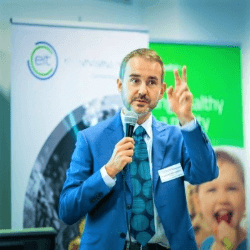
Krzysztof Klincewicz
Krzysztof Klincewicz is Professor at the Faculty of Management, University of Warsaw. He specializes in management of technology and innovation, with particular interest in strategies of technology firms and R&D management. Prior to joining the University, he had worked in the high-tech industry in Poland, Finland, the UK and at the Tokyo Institute of Technology. Expert in analysing innovation policies of EU member states in the Research and Innovation Observatory of the European Commission. Former member of the UN Technology Executive Committee and management board of EIT Food.
Project team

Rafał Bakalarczyk

Adrianna Jaskanis

Magdalena Klimczuk-Kochańska

Monika Skorek

Magdalena Zatorska
Project partners 2019-2020
6 project partners – members of EIT Food consortium participated in the development and piloting of the Labs methodology in 2019 (University of Aarhus, Maspex, Pepsico, Sodexo, EIT Food CLC North-East, EIT Food CLC South), and another 3 partners (Campden BRI, E-Seniors i DouxMatok) supported the project activities in 2020-2021.
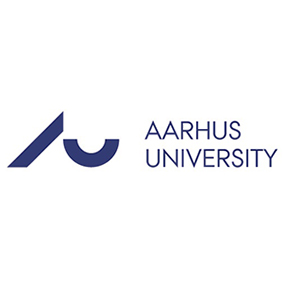
University of Aarhus
University of Aarhus performs world class research and Innovation in support of education, entrepreneurship and business development in sustainable food and agriculture including consumer studies. Our research and innovation capabilities cover whole value chains from sustainable crop and livestock production and precision agriculture to biorefinery and circular bioeconomy, to processing, food quality, ingredients, food & health and market acceptance. AU is found in top-ten in several global ranking lists for food and agriculture.
Contact person: Lina Jacobsen
Contact email address: linaj@mgmt.au.dk
Website: www.au.dk

Maspex
The Maspex Wadowice Group is one of the biggest food producers in Central and Eastern Europe, which operates on the food market for over 25 years. The company aims to be the leader in the food industry in the Central Europe in terms of both market share values and brand power.
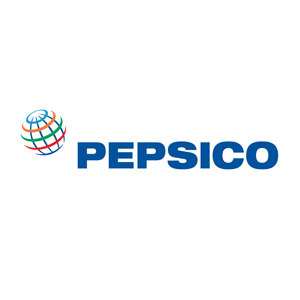
PepsiCo
PepsiCo is one of the world’s leading food and beverage companies with over $63 billion in net revenue in 2015 and a global portfolio of diverse and beloved brands. Our complementary food and beverage portfolio enables us to provide more choices for our valued consumers; from oats and juice and yoghurts, to snacks, dips and soft drinks. Our products are available around the world and our portfolio includes 22 brands that each generates more than $1 billion in estimated annual retail sales.
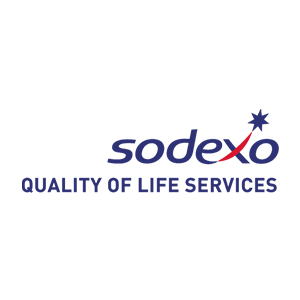
Sodexo
With 425 000 employees in 80 countries, SODEXO provides daily Quality of Life Services to over 75 million consumers at more than 32,000 sites : schools, universities, production, administration or business centres, detention centres, hospitals, senior homes.
We experience daily, at field level where consumers live, that Quality of Life Services and Food Services at a special position, directly contribute to progress of individuals and to the performance of their organization. We also know how much Food Service can contribute to health & wellness for our guests, nutritional education for the youngest, social interaction and sense of recognition, personal development, facilitation for ease and efficiency in daily activities and tasks, for providing a safe and secure living environment.
We also have clear commitments and important role to play for our environments (planet, local communities) in a sustainable development perspective.
Contact person: Laurent Cousin
Contact email address: laurent.cousin@sodexo.com
Website: www.sodexo.com
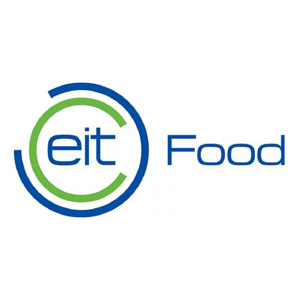
Contact
If you would like to know more about the project, please do not hesitate to get in touch with our team or the project leader, Prof. Krzysztof Klincewicz from the University of Warsaw (kklincewicz@wz.uw.edu.pl).

© Copyrights 2019 TiMO - Department of Organization Theory and Methods, Faculty of Management, University of Warsaw. All Rights Reserved.


